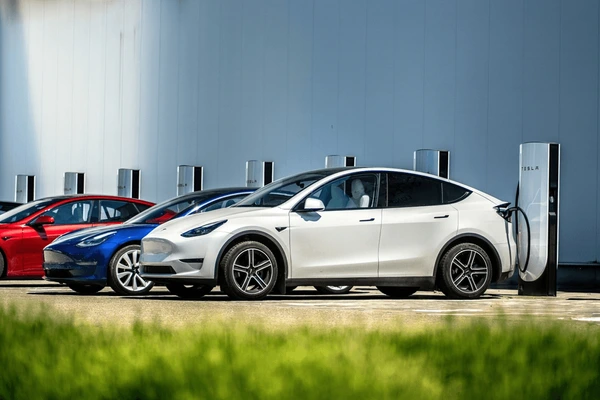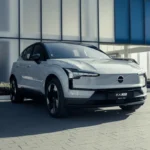The electric vehicle market in 2025 is growing rapidly and offers more choices than ever. Choosing the right electric vehicle can be overwhelming with so many options available in India and worldwide. From battery range to charging infrastructure, maintenance, and total cost of ownership, there are several factors to consider. This comprehensive EV buyer’s guide for 2025 will help you make an informed decision with practical advice and expert insights.
Identify Your Driving Needs
Before looking at specifications and features, consider how you will use your EV.
- Daily Commute: If your driving is mostly within the city covering 30 to 60 km per day, a compact EV with 250 to 350 km range is sufficient.
- Weekend Travel: For occasional long trips, look for EVs offering 400 to 500 km range with fast charging support.
- Business or High Mileage: If you drive extensively, prioritize range, charging network coverage, and after-sales support.
Understand EV Battery Range
The battery is the heart of an electric vehicle. The larger the battery measured in kilowatt hours, the longer the driving range.
- Entry-Level EVs: 250 to 350 km range
- Mid-Segment EVs: 400 to 500 km range
- Premium EVs: 550 km and above
Pro Tip: Always choose a car that provides at least 20 percent more range than your daily needs to avoid range anxiety.
Charging Options and Infrastructure
Charging speed and accessibility are critical factors when selecting an EV.
- Home Charging: Most EVs can charge overnight in 6 to 8 hours. Ideal if you have a home parking space with power supply.
- Fast Charging: Public DC fast chargers can add 100 to 150 km of range in just 30 minutes.
- Charging Network: Check if your city or routes have reliable fast charging stations. Companies such as Tata Power, Statiq, and ChargeZone are expanding their networks across India.
Calculate the Total Cost of Ownership
EVs may have a higher upfront cost but can save money over time.
- Fuel Savings: Charging an EV is approximately 4 to 5 times cheaper than fueling petrol or diesel vehicles.
- Maintenance: Electric vehicles have fewer moving parts, reducing maintenance costs by nearly 40 percent.
- Government Incentives: Schemes such as FAME II and state subsidies can reduce EV prices by up to 1.5 lakh rupees.
Features to Consider
Consider these features to get the most value from your electric vehicle.
- Battery Warranty: Typically 6 to 8 years. A longer warranty offers peace of mind.
- Safety Ratings: Models such as Tata Nexon EV and BYD Atto 3 are highly rated for safety.
- Smart Features: Connected apps, regenerative braking, and driver assistance systems improve convenience and efficiency.
Popular Electric Cars in India 2025
- Budget-Friendly: Tata Tiago EV (₹9 to 12 lakh) – ideal for city driving.
- Mid-Range: MG ZS EV and Hyundai Kona (₹20 to 25 lakh) – suitable for city and highway driving.
- Premium: BYD Seal, Kia EV6, Volvo EX30 (₹40 to 60 lakh) – high range and advanced features.
- Luxury: Mercedes EQE and BMW iX – premium performance and comfort.
Plan for Resale Value and Future Technology
The EV market is evolving quickly. Choosing a vehicle from a trusted brand with good after-sales service helps ensure higher resale value. Keep an eye on emerging battery technologies such as solid-state batteries which promise faster charging and longer range.
Conclusion
Buying an electric vehicle in 2025 is not just about owning a car, it is about investing in a cleaner, smarter future. By considering your driving needs, charging options, budget, and vehicle features, Also check if there are any schemes for EV then only you can confidently choose the right EV for your lifestyle. Whether you are looking for a compact city EV or a premium electric SUV, 2025 offers more options than ever before. The future is electric and ready for you.
“Looking for more than just portable chargers? Discover our full range of blogs on Electric Cars, EV Subsidies, and EV Accessories.”
Latest Posts
- Top 5: 150 km Range Electric Scooters in India (2026): No More Range Anxiety!
- Best Electric Vehicles to Buy in India in 2026 (Updated List)
- India EV Market 2026 Could Reach $17 Billion: A Defining Moment for Electric Mobility
- Tata Motors’ ₹18,000 Crore EV Investment Signals a Major Industry Shift
- 10 BIG EV Discounts in December: Up to ₹4 Lakh Off on Affordable Electric Cars




Alright folks, been checking out ok922 lately and gotta say, it’s not bad at all. Easy to navigate, things load quickly, and they seem to have a decent selection. Give ok922 a whirl!
777cbgame… Anyone up for some matches? Hit me up if you are! Start gaming 777cbgame
U888U888COOL on .com, huh? Had some fun times there. Fair play and a smooth interface. Worth a peek. u888u888cool
Just downloaded the bit789app and so far, so good. Easy to navigate, and the games are running smooth. Gives you a fresh experience, worth exploring. Check it out if you want a mobile alternative! bit789app
DragonTigergame is my go-to for a quick gamble. The Dragon Tiger game is fun and fast-paced. Good if you like that kind of game. Check it here: dragontigergame
Aliwin789game1 has a pretty solid variety of games. Seems legit and I haven’t had any issues so far. Might be worth checking out if you are bored. Here is a fast way to check: aliwin789game1
D555game is pretty solid. The interface is cool and I haven’t had any issues with withdrawals at all. Recommend: d555game